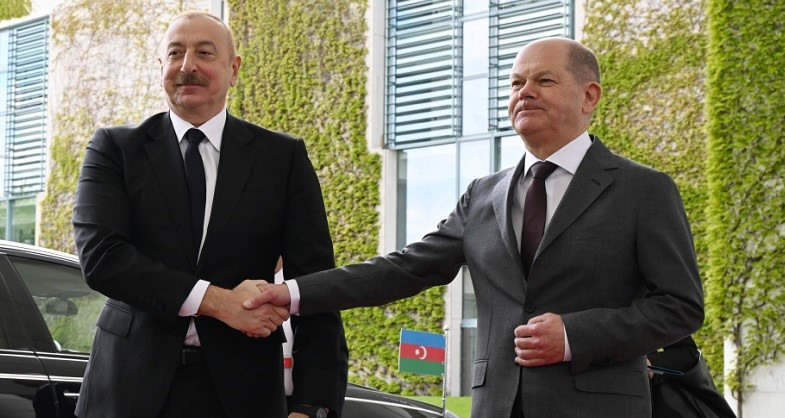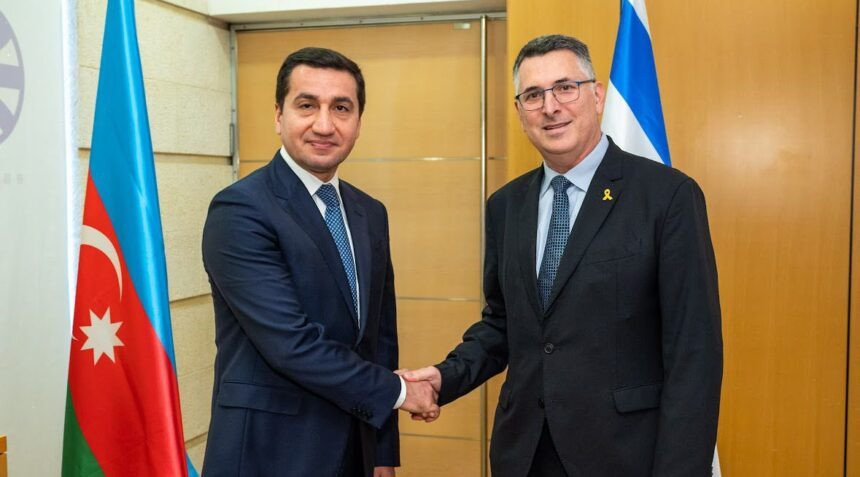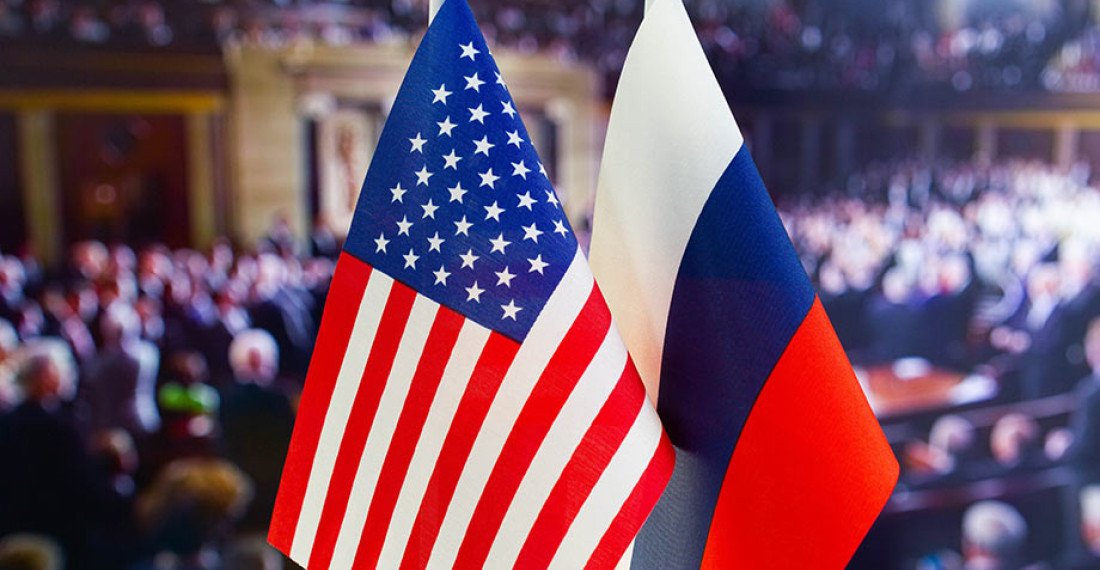On April 26, President Ilham Aliyev of Azerbaijan visited Germany to address the "15th Petersberg Climate Dialogue" in his capacity as the host nation's president for COP29. This visit marked a significant opportunity for both countries to discuss bilateral relations and explore avenues to strengthen ties. Germany’s increased involvement in the South Caucasus, notably in the Armenia-Azerbaijan peace process, provides a promising foundation for fostering closer relations between Baku and Berlin.
Historical interactions reflect positively on German-Azerbaijani relations. Diplomatic ties were established soon after Azerbaijan gained independence from the Soviet Union. In 1992, diplomatic channels were opened, leading to the mutual establishment of embassies in September of that year. Since the early 1990s, high-level visits have been frequent, laying a solid foundation for enhanced cooperation and the realization of mutual objectives.
Germany’s consistent support for Azerbaijan’s territorial integrity has been a critical element in this context. During her visit to Azerbaijan in November 2023, Germany’s Foreign Minister Annalena Baerbock reiterated this support. “I have always stated that Karabakh is the territory of Azerbaijan. Germany has always supported the territorial integrity of Azerbaijan,” she declared at a joint press conference with her Azerbaijani counterpart, adding that “Azerbaijanis should return to their lands.”
These relations have been fortified through the signing of approximately 80 bilateral agreements across various areas of cooperation. In terms of inter-parliamentary engagement, both nations host working groups: the Azerbaijani-German working group on inter-parliamentary relations operates within the Milli Majlis, while the German-South Caucasus group functions within the Bundestag. Additionally, Azerbaijan's presence in Germany is represented by offices of SOCAR, AZAL, and IBA, while the German International Cooperation Society operates in Azerbaijan.
Azerbaijan primarily exports oil and agricultural products to Germany, while its imports include machinery, motor vehicles and components, iron and steel goods, and industrial equipment. Investment cooperation stands as a pivotal facet of bilateral relations. From 1995 to 2019, Germany invested over 626.6 million dollars in Azerbaijan, with approximately 96% directed towards the non-oil sector. Concurrently, Azerbaijan invested around 3.1 billion dollars in Germany. Moreover, Germany actively supports the strengthening of Azerbaijan's non-oil sector, promoting a model of sustainable economic development through initiatives led by the Federal Ministry of Economic Cooperation and Development, the German Cooperation Society (GIZ), and the Azerbaijan-German Chamber of Commerce. Discussions between relevant institutions of both countries also explore the potential for collaborative ventures in the renewable energy sector.
Azerbaijan holds a significant position in Germany’s Caucasus policy, primarily due to its oil and gas reserves and strategic geographical location at the crossroads of East and West along the Middle Corridor. In this context, Azerbaijan serves as both an alternative energy provider and a crucial energy corridor, contributing to the energy security of the European Union, including Germany.
The completion of the Southern Gas Corridor in December 2020 further solidified Azerbaijan's importance on Europe’s energy map, facilitating the delivery of Azerbaijani gas to the continent. The two countries have shown a commitment to enhance cooperation in the green transition field as well. German companies are ready for cooperation in the field of renewable and hydrogen energy in Azerbaijan, Germany’s Chancellor Olaf Scholz said at the press conference held following an expanded meeting with President Aliyev in Berlin on April 26.
It's noteworthy that Germany has also taken on a more proactive role in the Armenia-Azerbaijan peace process. On February 28-29, the foreign ministers of Azerbaijan and Armenia, Jeyhun Bayramov and Ararat Mirzoyan, respectively, convened for another round of peace talks in Berlin, Germany. This ministerial meeting was agreed upon during an earlier discussion between the Armenian and Azerbaijani leaders, initiated by Chancellor Olaf Scholz on February 17, on the sidelines of the Munich Security Conference.
The involvement of German leadership in advancing the peace process is crucial not only for fostering a positive perception of the European Union in the South Caucasus but also for serving as an impartial mediator between Azerbaijan and Armenia. The need for Berlin’s intervention heightened following France’s disruptive involvement in the peace process, which undermined Brussels-led efforts, resulted in the cancellation of President Aliyev’s participation in the EU-organized Granada meeting in October 2023, and generally negatively affected the honest broker image of the EU.
In light of President Ilham Aliyev’s recent visit to Germany and the growing engagement between the two nations, it’s evident that deeper relationships between Azerbaijan and Germany are not only desirable but also increasingly feasible. This visit has underscored the potential for enhanced cooperation, particularly in the realm of sustainable development and climate action, which is top on the agenda due to the upcoming COP29 in Baku. Moreover, Germany’s active involvement in the Armenia-Azerbaijan peace process signifies a broader commitment to regional stability and dialogue. As both countries continue to strengthen economic ties, foster cultural exchanges, and collaborate on strategic initiatives, the foundation for a mutually beneficial partnership grows stronger.
https://news.az/news/its-high-time-for-deeper-relationships-between-azerbaijan-and-germany








